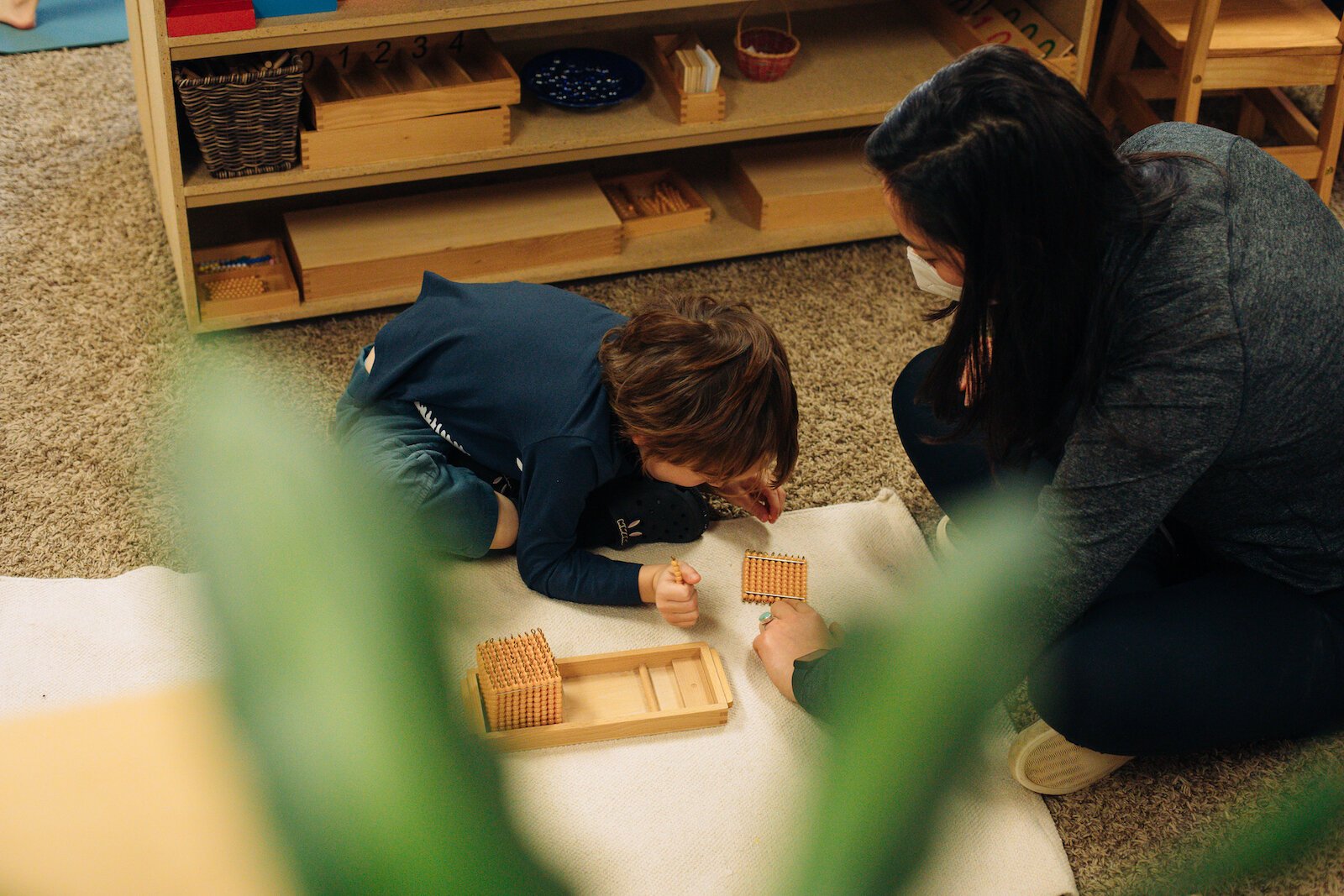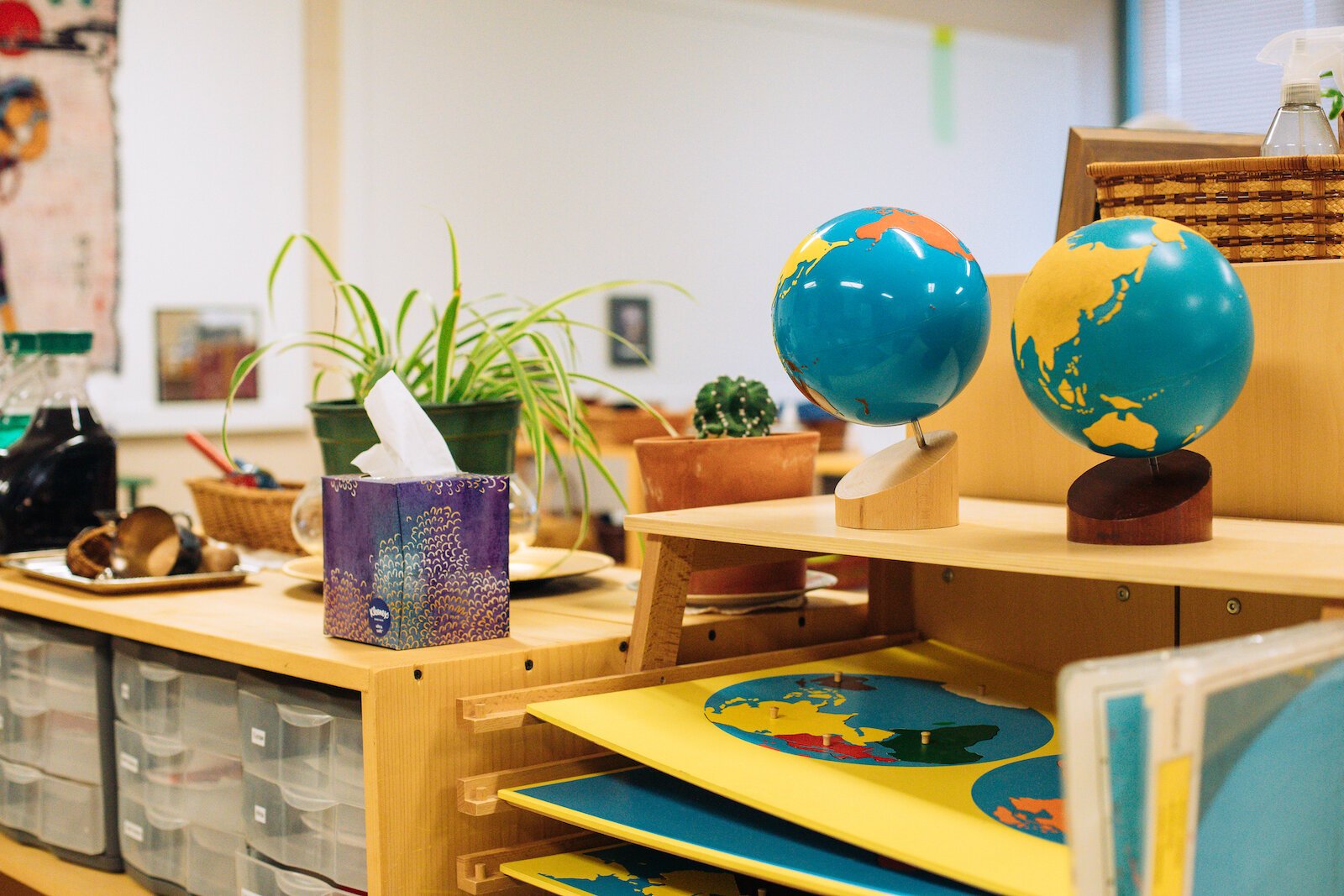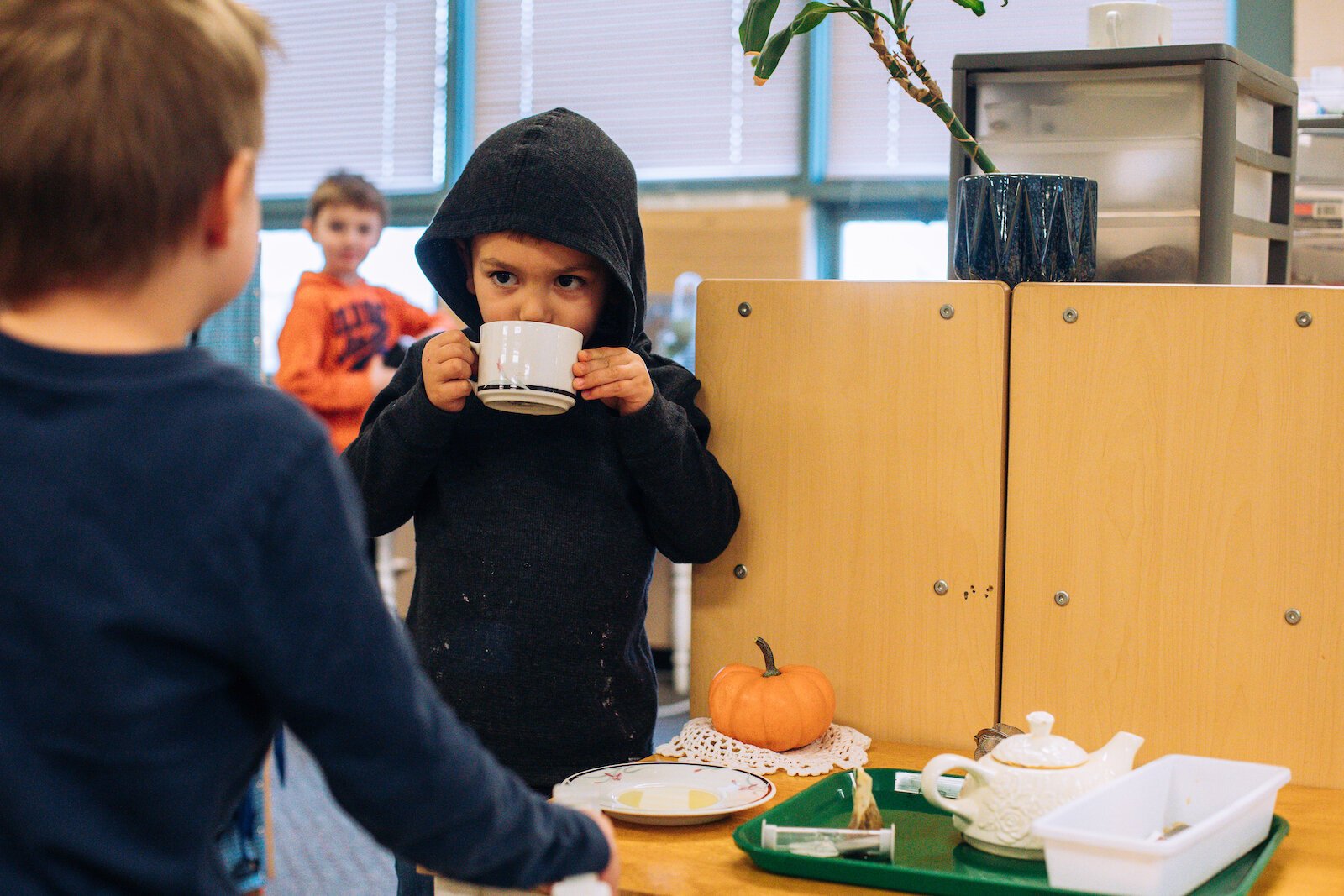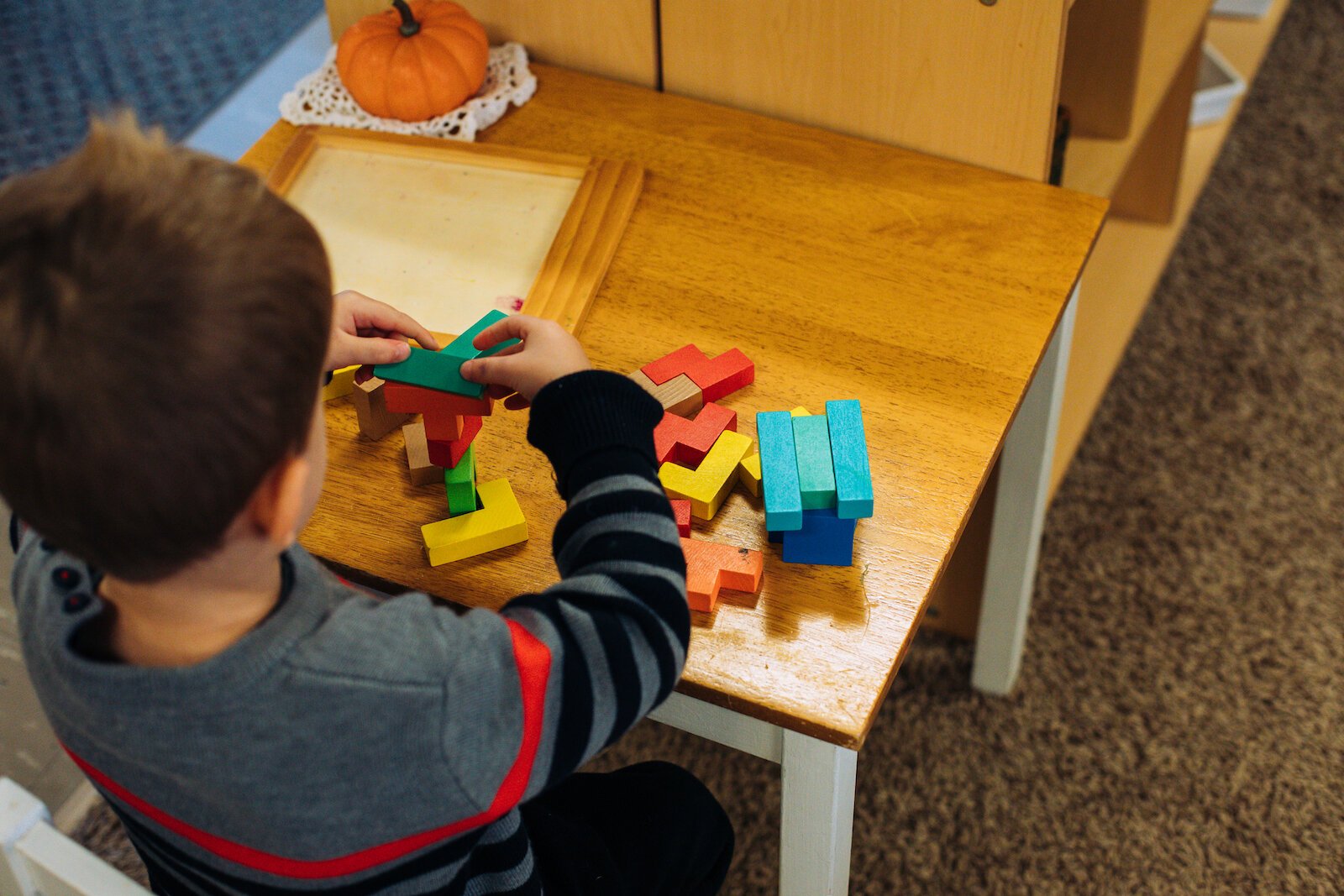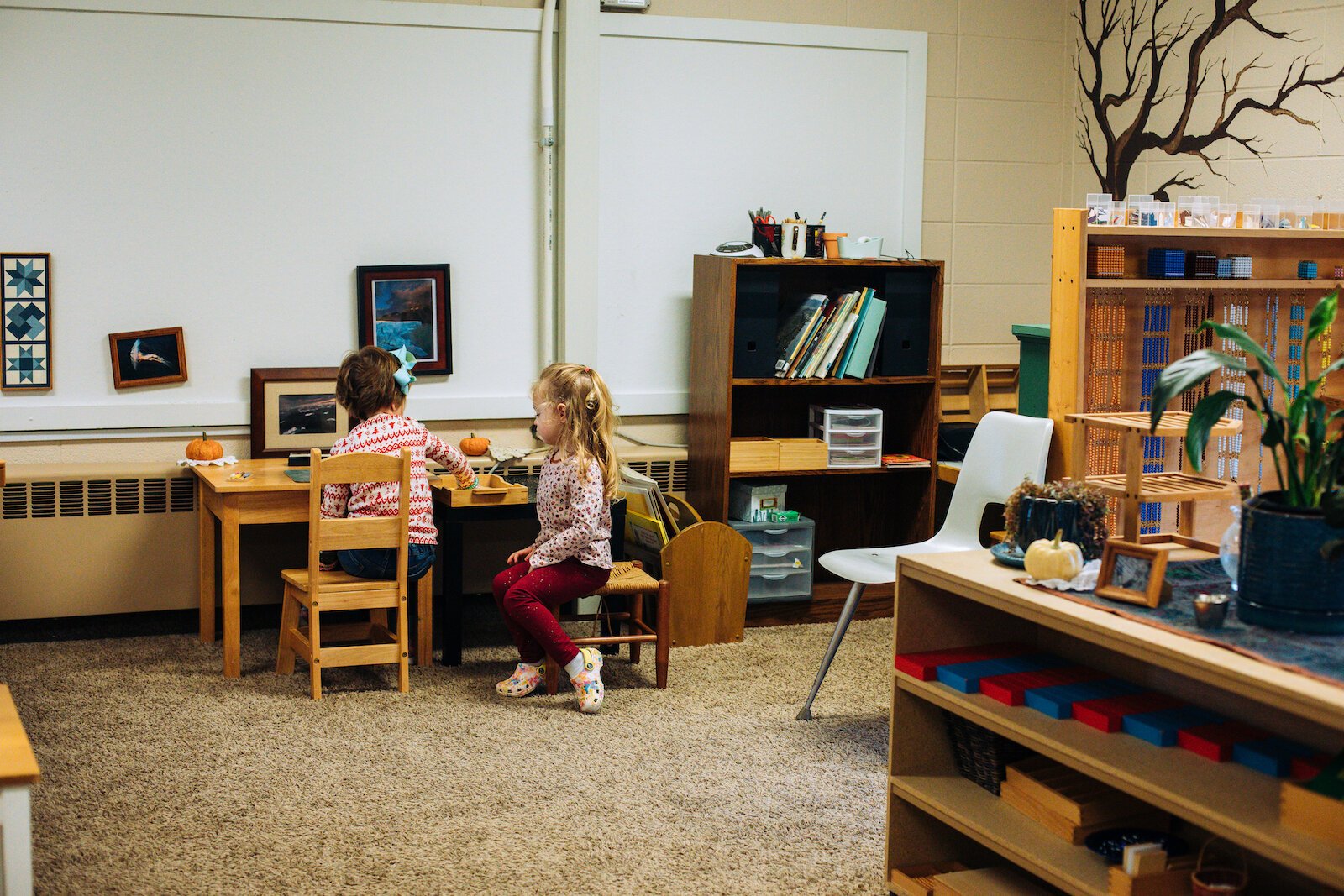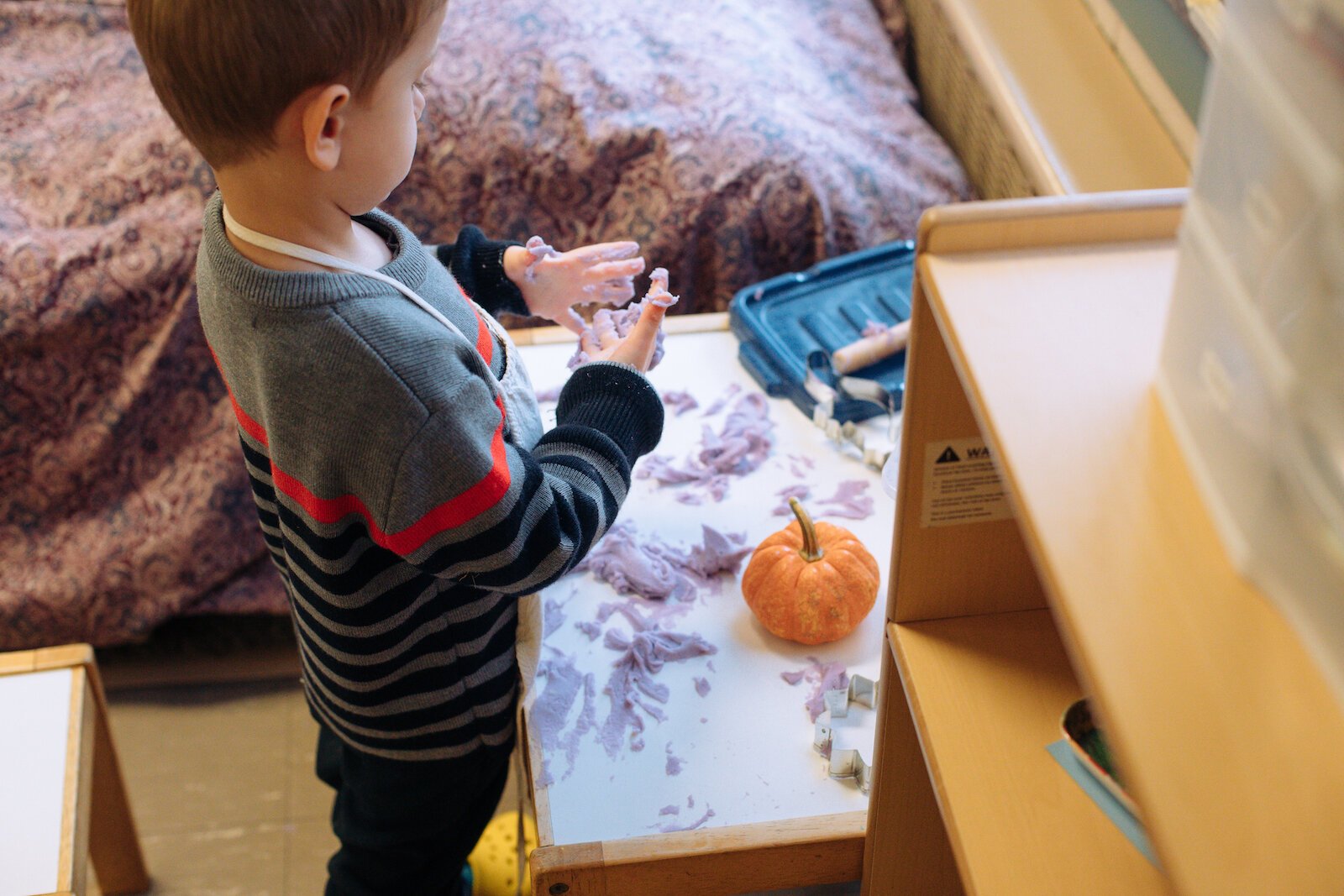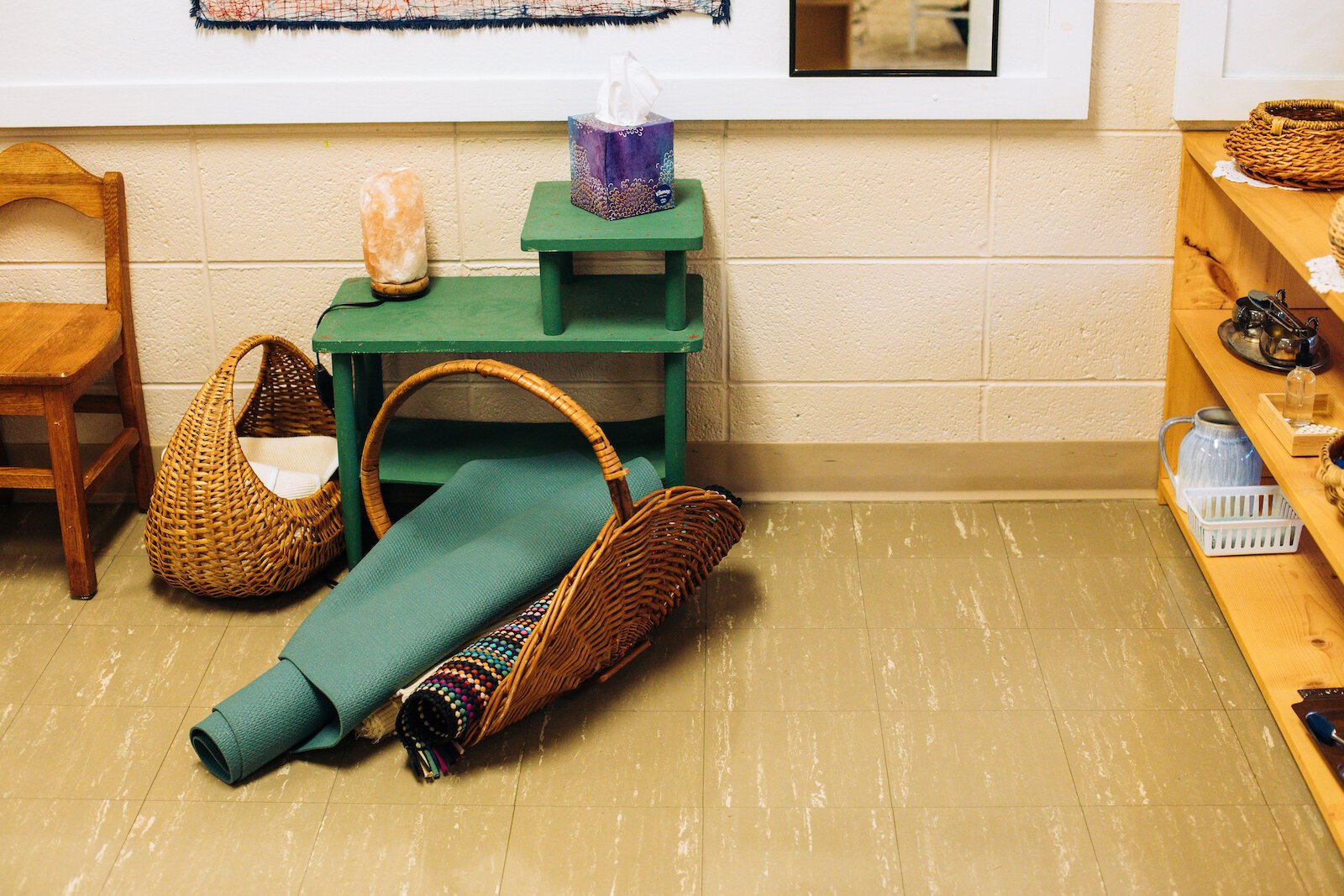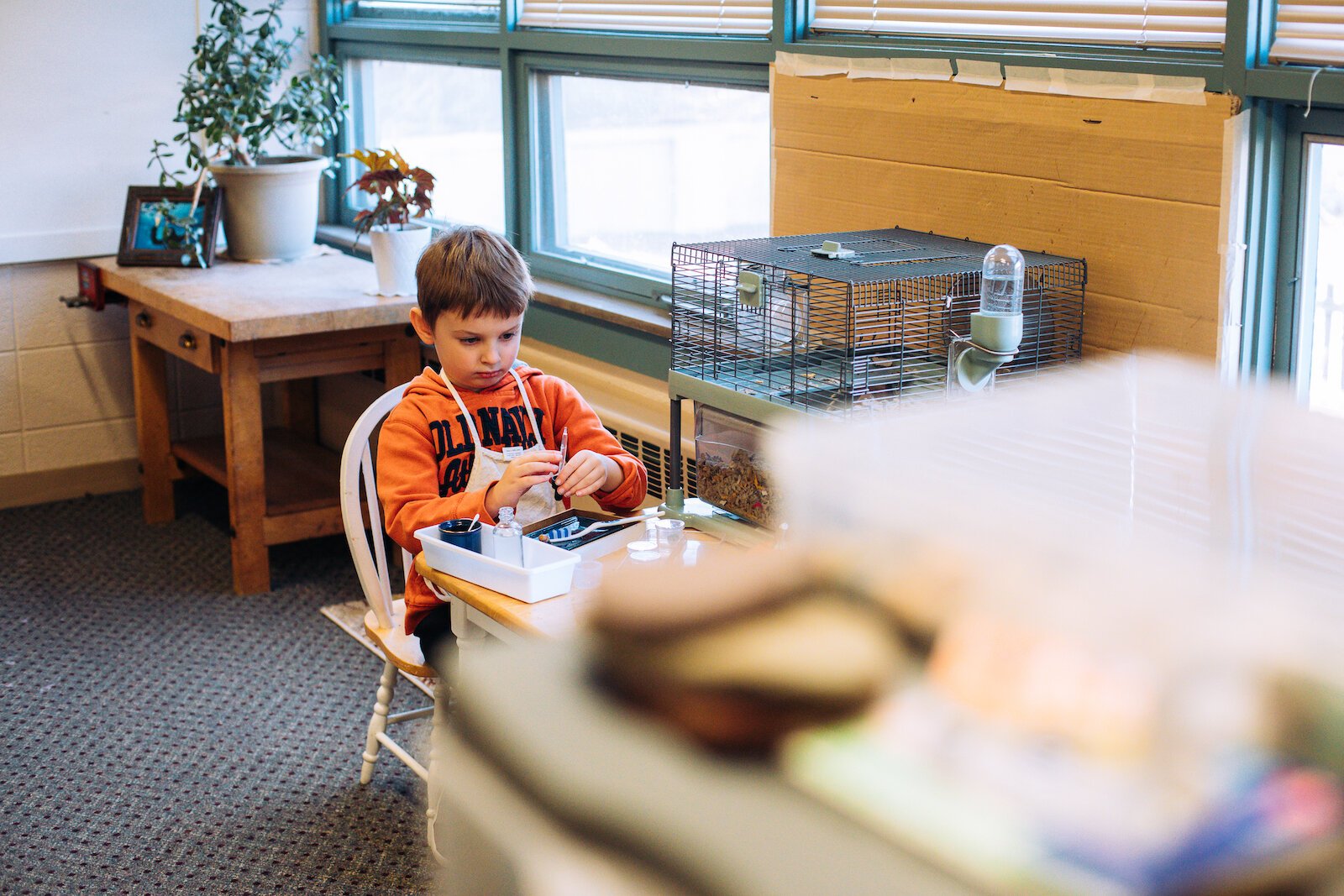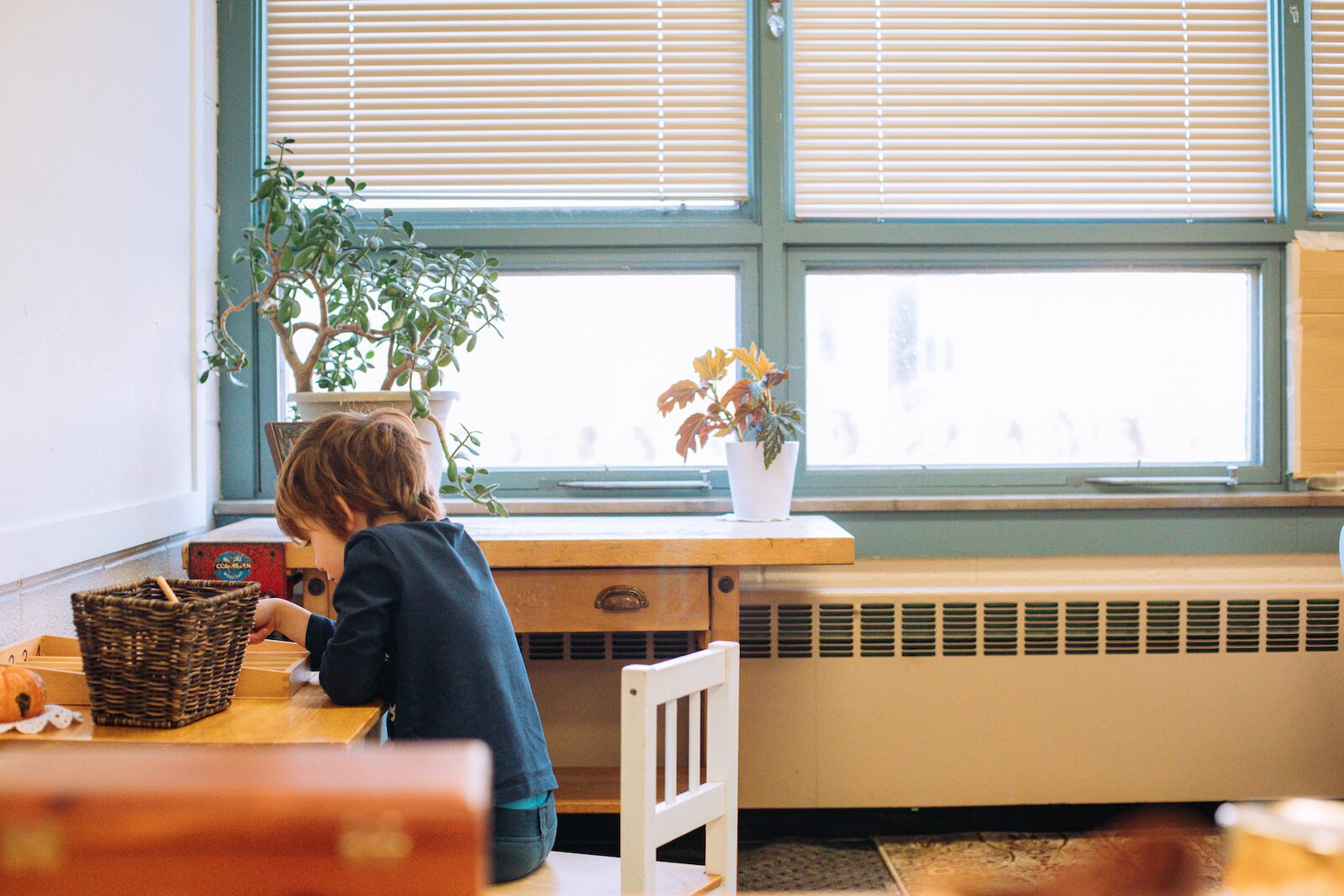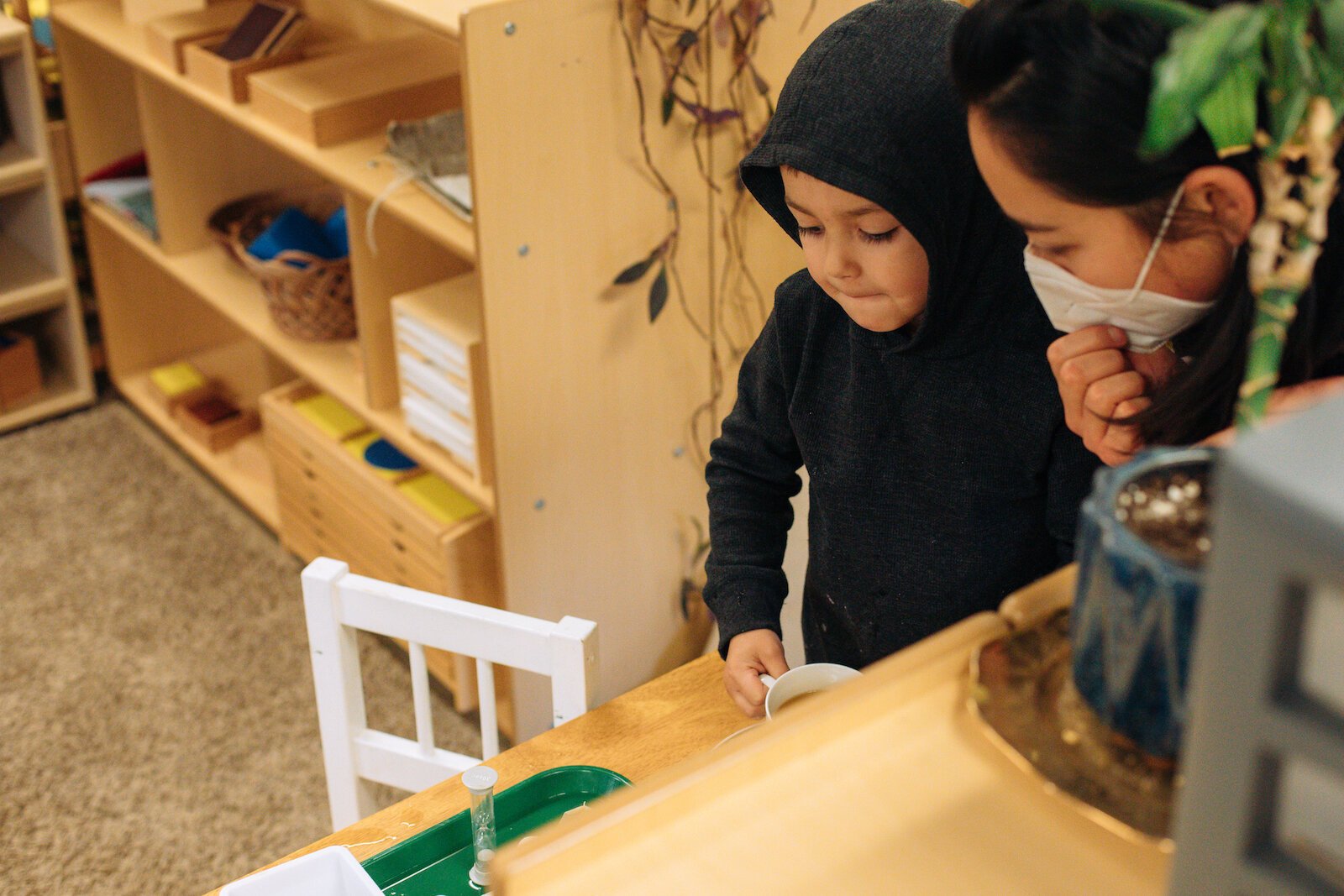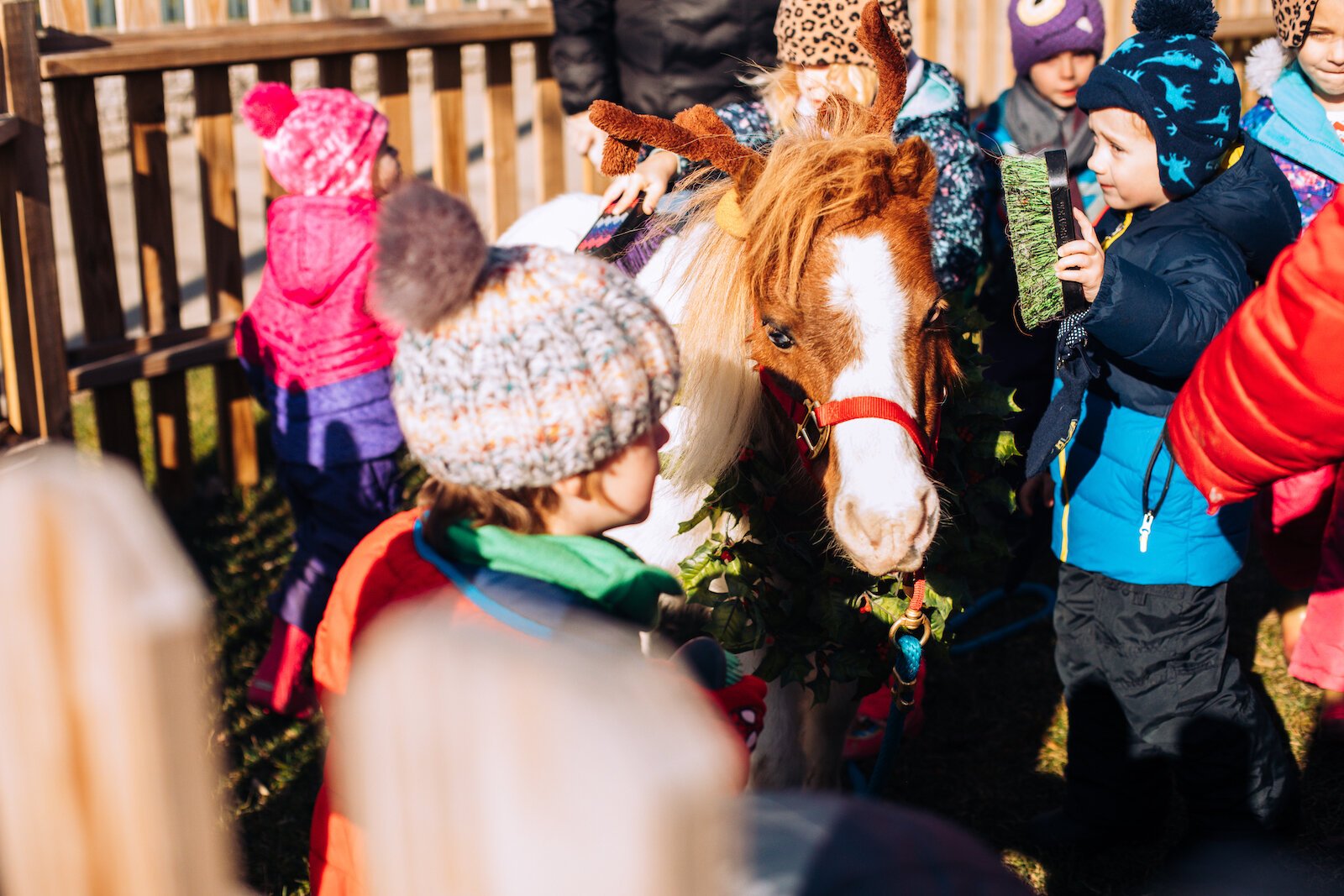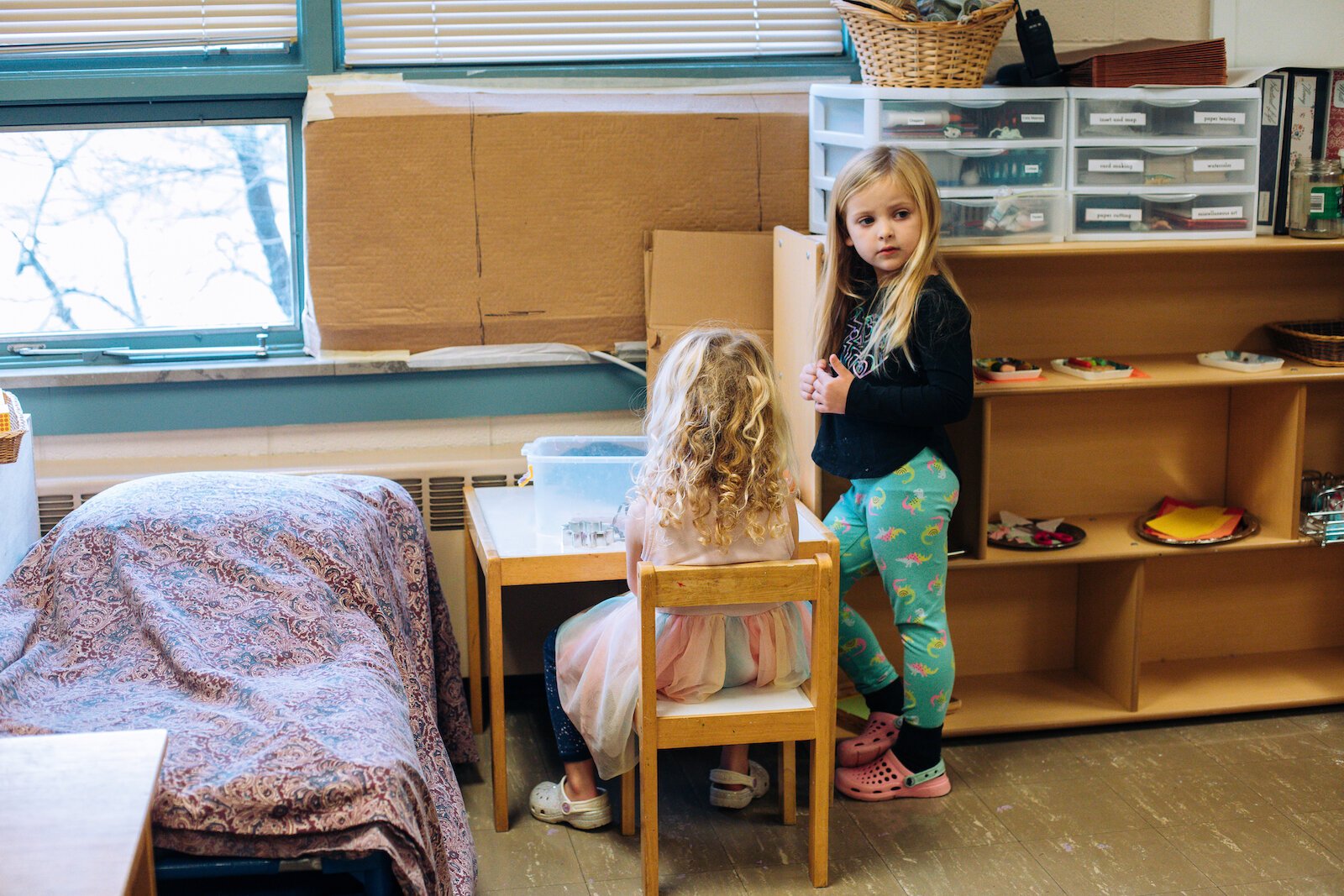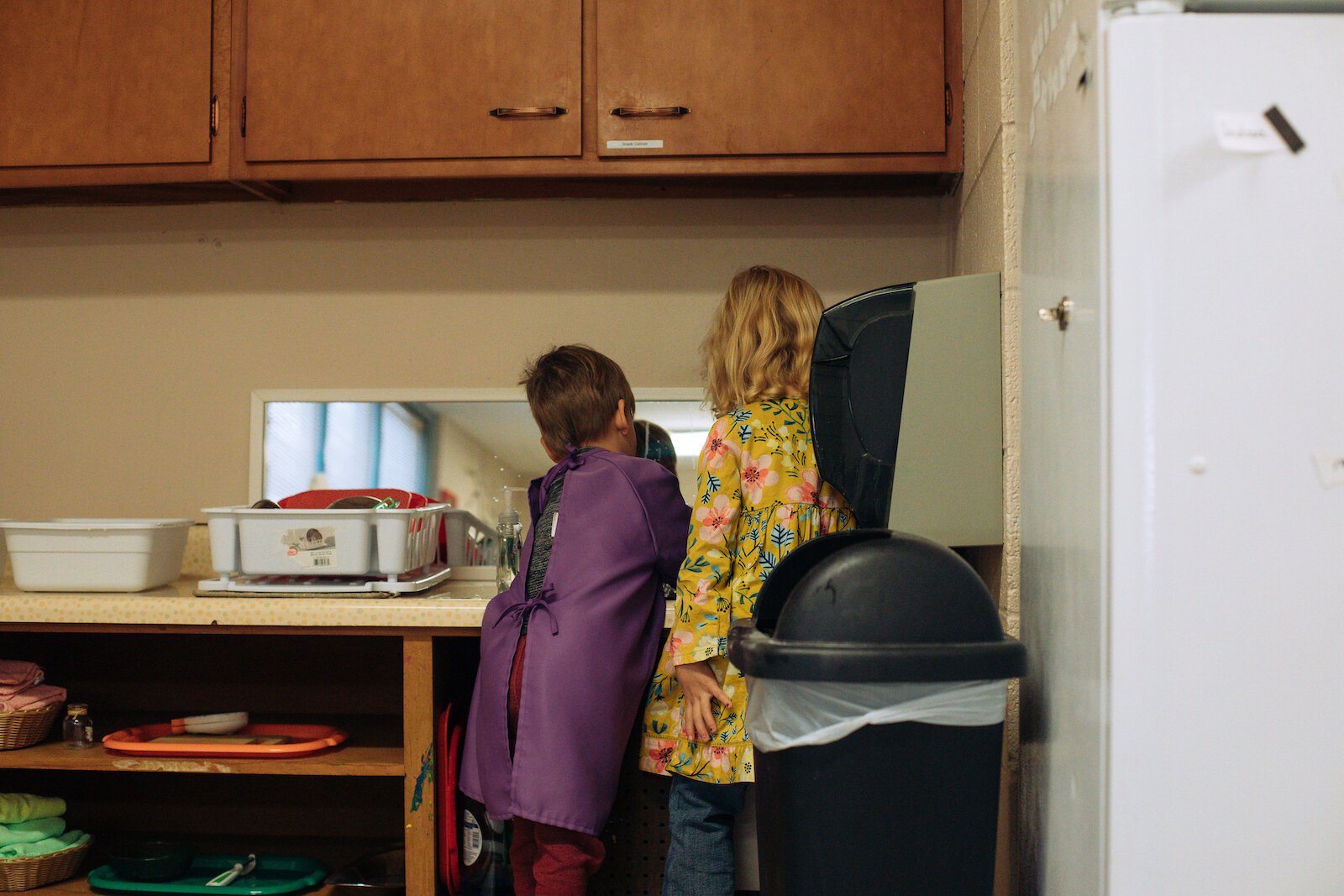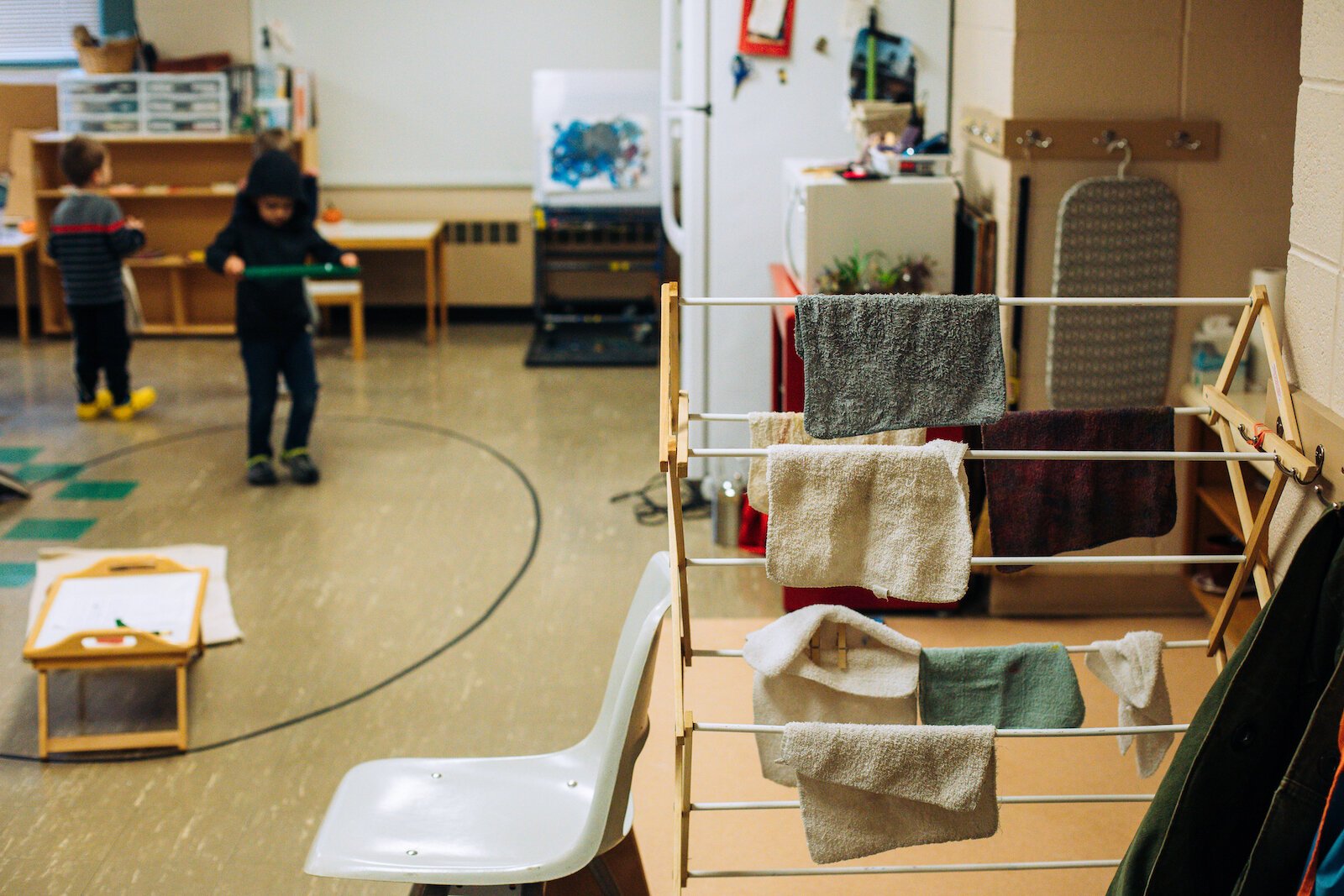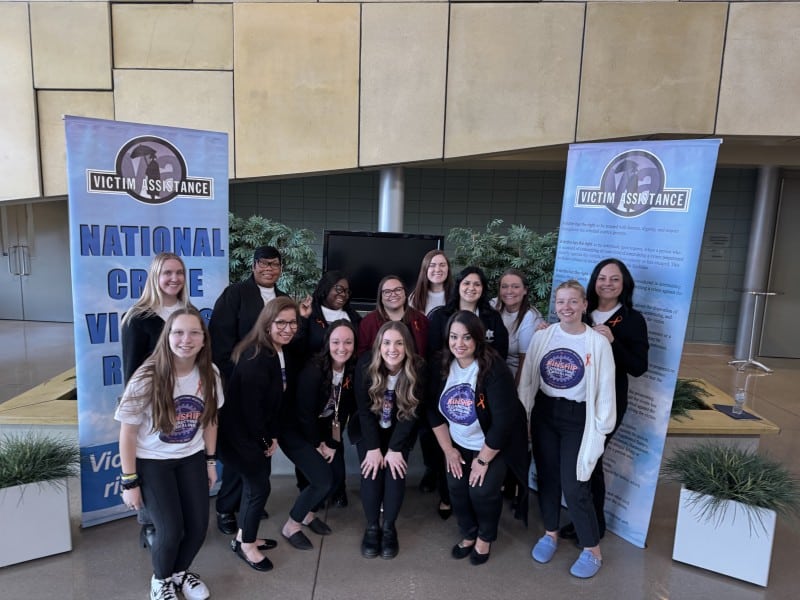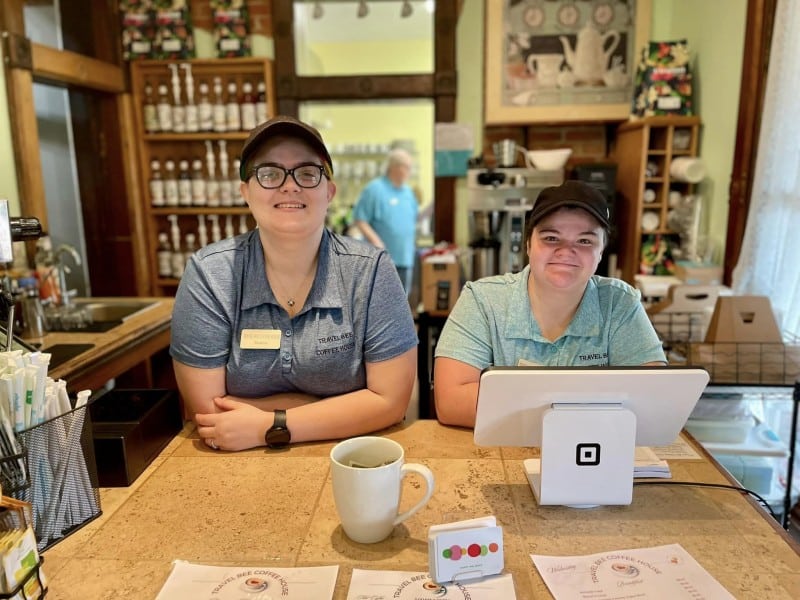What is Montessori Education? A new school is bringing the child-focused approach to Wabash
“I had no intention of becoming a teacher, but I believe so strongly that Montessori education needs to exist.”
If you grew up in the Midwest, you might not be familiar with Montessori Education.
Montessori schools have been in practice for more than a century; the first school opened in Rome in 1907. It all started with Maria Montessori, an educator, scientist, and physician, who developed a child-focused approach to education.
According to the Montessori Foundation, Maria discovered “when young children concentrate and investigate a set of purposefully designed activities, they tend to develop self-control; their movements become ordered, and they appear peaceful. Their demeanors toward others become kind and gentle.”

Several Montessori schools exist in the Fort Wayne area, and more are opening across the region. One Northeast Indiana resident based in Wabash believes in the Montessori experience to the extent that she opened her own school.
Growing up in Portland, Oregon, Addie Neher and her family hosted various people through the years in their home. Some of these people happened to be Montessori educators. Not having a Montessori education herself, Neher was fascinated by the Montessori approach.
“I thought it was amazing,” says Neher. “It was student-led and focused on child independence.”
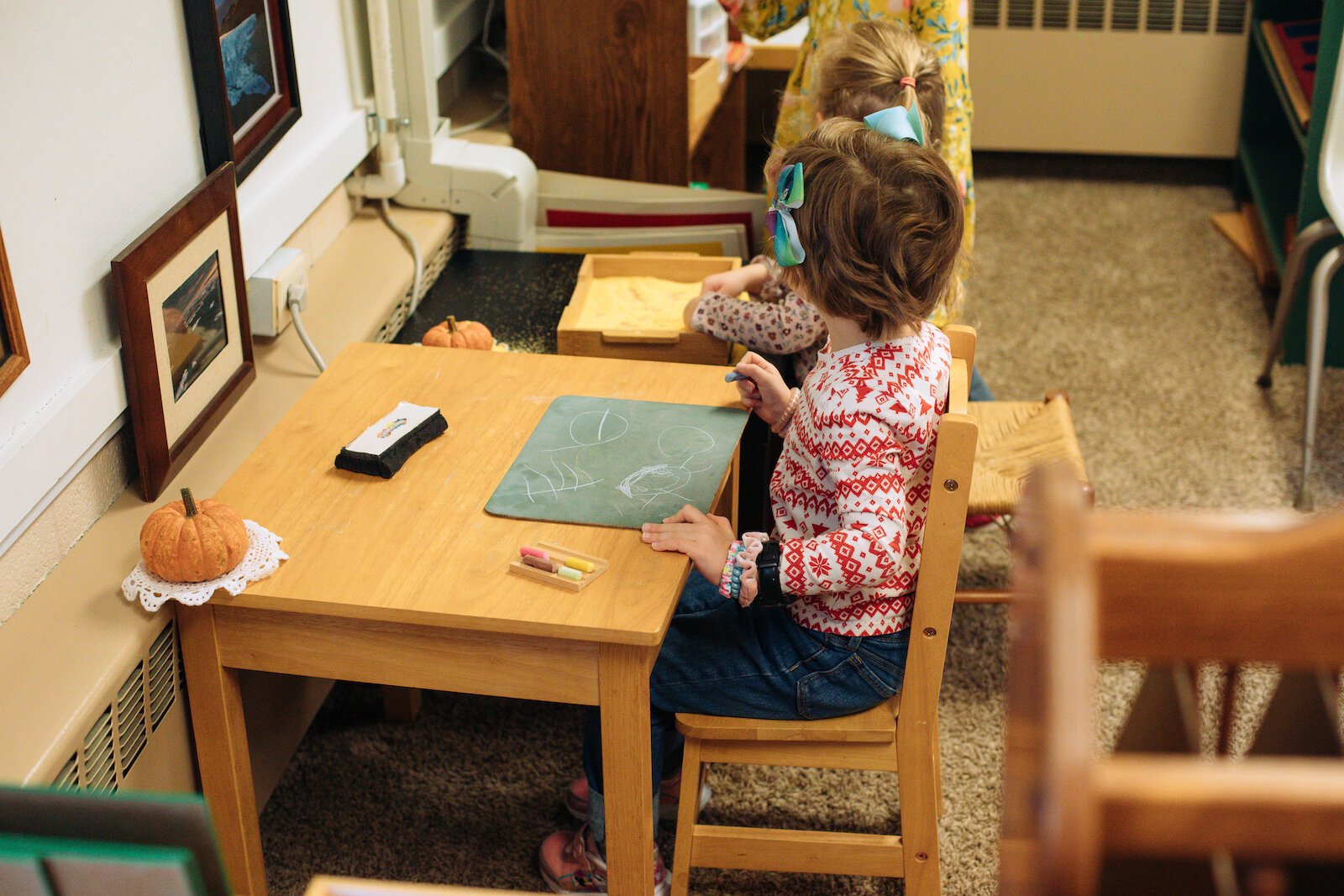
Starting a Montessori school was not on Neher’s radar, so after graduating from high school, she enrolled at Manchester University in North Manchester. Neher wasn’t the first in her family to attend Manchester, making it a natural place to land for her undergraduate education. She studied accounting and peace studies with the intention of becoming an accountant.
But Neher’s introduction to Montessori education as an adolescent stayed with her and eventually drew her back to Portland to participate in an Association Montessori Internationale (AMI) teacher training program with Montessori Northwest. Neher graduated with her Masters in Education and AMI Diploma in 2019.
“I had no intention of becoming a teacher,” she says. “But I believe so strongly that Montessori education needs to exist.”
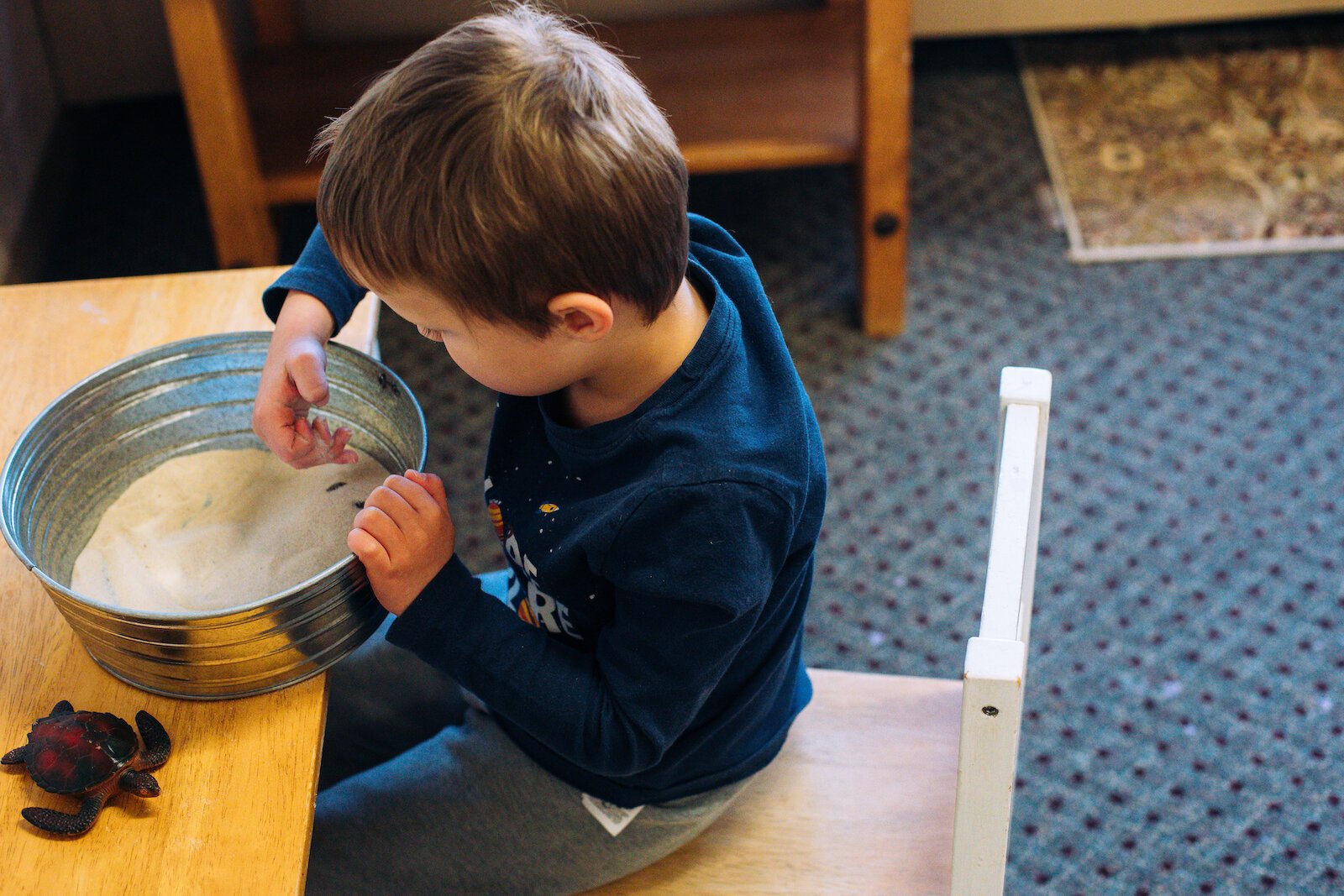
Neher recognized that there was a greater need for Montessori education in the Midwest, so she moved back to Indiana with the goal of starting her own Montessori school. Wabash Presbyterian Church already had an active preschool; one that had been in existence for 60 years. Neher spoke with the school board and shared her vision for a Montessori school. In 2019, Neher was hired to make her dream a reality and transition the current space into a Montessori environment. The Montessori School (TMS) at Wabash Presbyterian Church (WBC) was born.
The Montessori School at WBC is currently in its fourth year of enrollment. Neher and her staff have added a classroom each year, providing opportunities for children ages 1.5 to 9.
When you walk into the classrooms at TMS, you won’t find desks or a grouping of tables and chairs that you might find in a traditional classroom. At TMS, classrooms consist of mixed-age groups and children move freely through the room who have the freedom to choose how to engage with the environment. Maria Montessori was known for believing that children need “freedom within limits,” and that’s what Neher and her staff work to accomplish every day.

According to The Montessori School at WPC website, the educational experience is driven by the following observations: “Human development is not bound by age; each person has an inherent motivation to develop themselves; and each person is unique in personality and interest. We recognize that there are different planes of development.”
Neher says kids are advanced to the next level when they’re ready, as opposed to being moved along based on age. Neher and her staff also refer to themselves as Guides because “the purpose isn’t to teach, but to guide.”
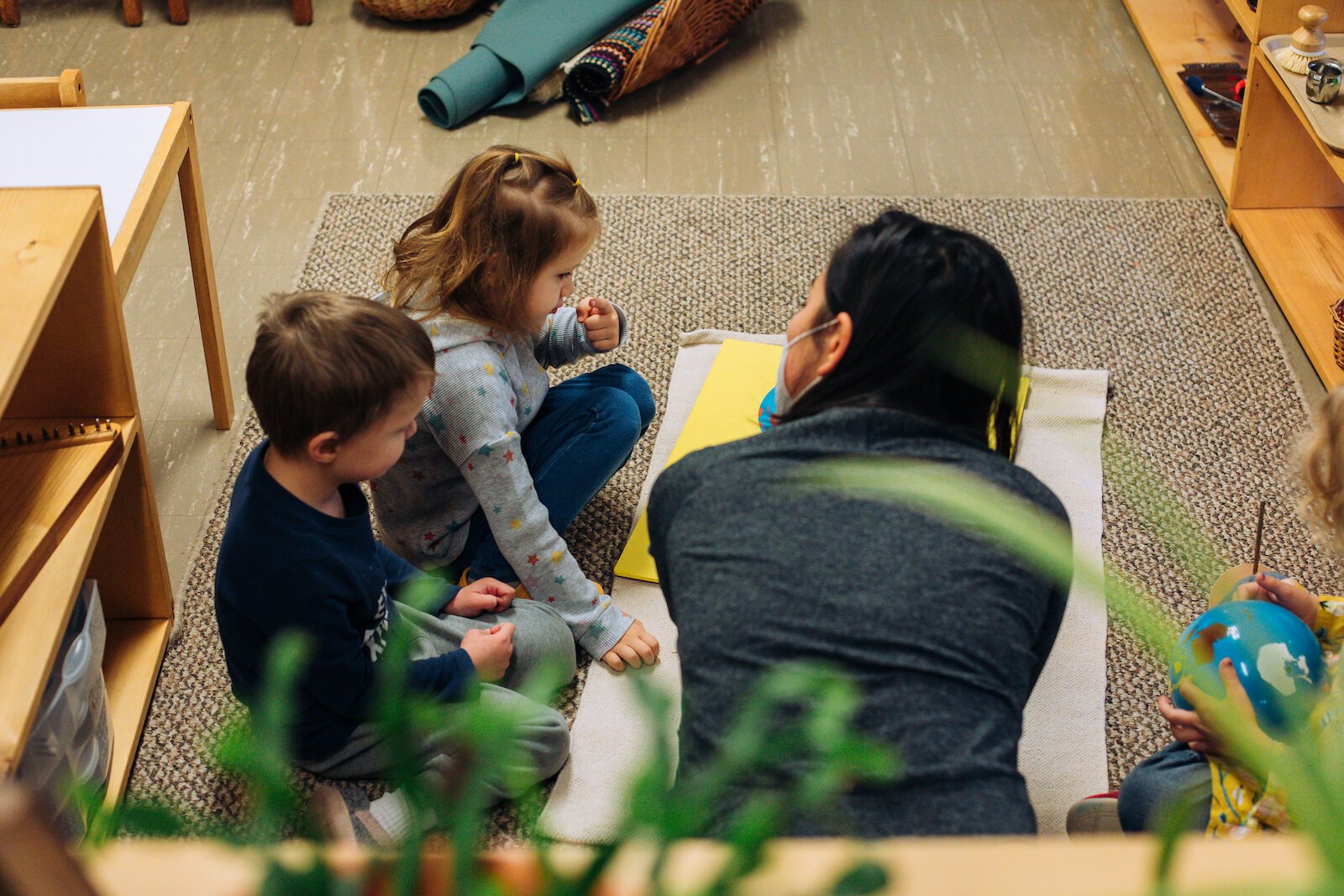
She is particularly proud of her staff at TMS.
“The talent is amazing,” she says. “The training for Guides is really important and the emotional regulation of our staff is crucial.”
All Guides at TMS have Association Montessori Internationale (AMI) or American Montessori Society (AMS) training. Guides must be able to prepare themselves mentally, physically, and emotionally for an effective day of work.
“We want our students to feel unconditionally loved and valued,” Neher says.
Once a Guide has provided a lesson, children have access to that activity in the classroom. For example, after receiving a lesson in painting, a child can engage with that activity, including setting up their own painting area and cleaning up after themselves. Everything is accessible to the child: Paper, art supplies, and a wash station.
“Anyone can work with anything as long as they are ready and have had a lesson on it,” says Neher.
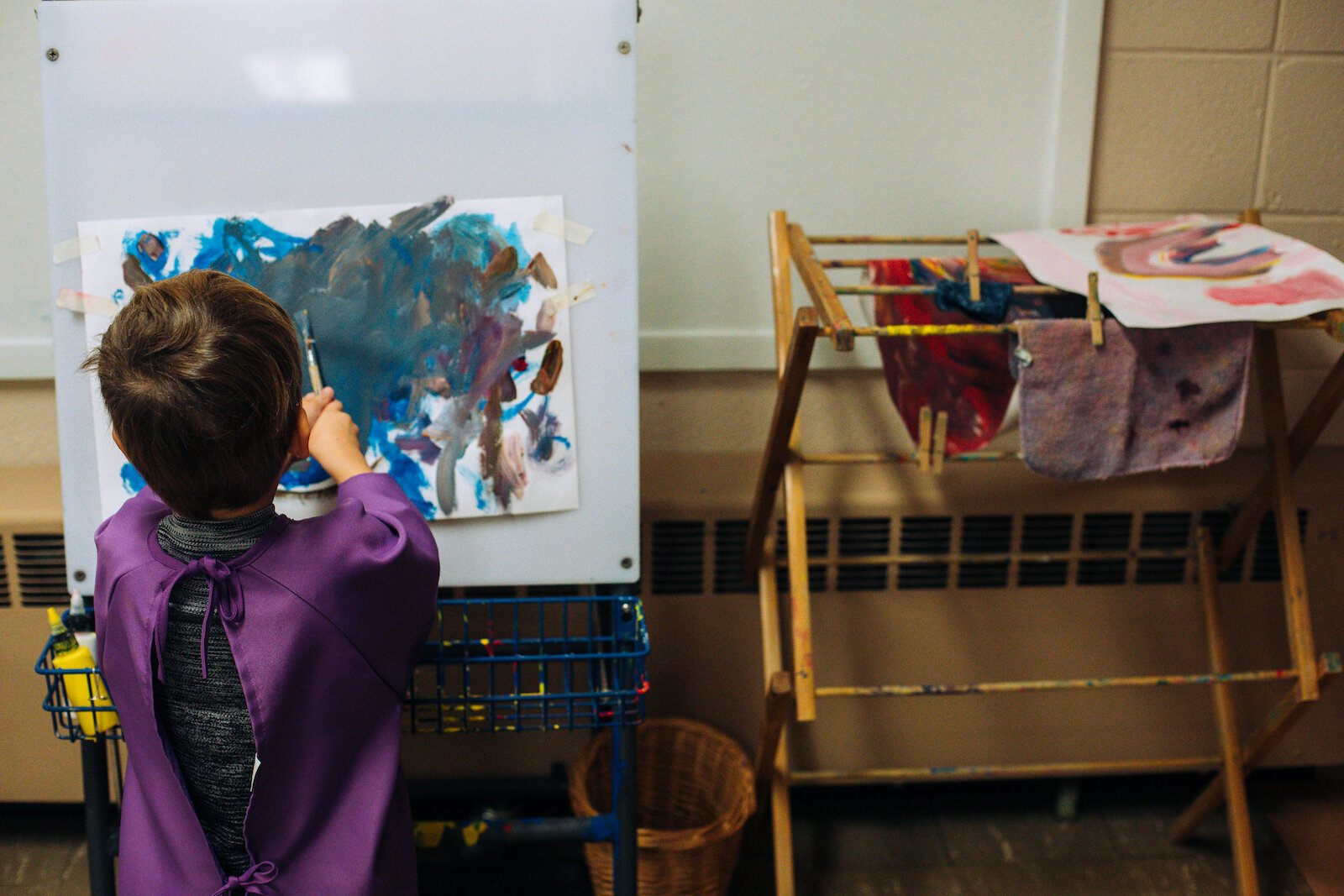
She and her staff recognize that all children have different needs. They ask themselves, “What does a child need and how can we meet their needs within the expectations of the classroom?”
Montessori education tailors itself to the child and works to build a strong connection with each child. Students not only learn from interaction with the classroom environment, but also from their classmates.
One value of The Montessori School at WPC is exposure to nature. The classroom is full of natural materials such as wood, metal, and linen. And spending time outside is part of the daily schedule. Students at TMS spend time at the school’s nature playground which consists of rocks, sticks, rainwater, logs, and more. All students have rain gear and snow gear to ensure that weather won’t interfere with their ability to be outside. TMS even offers a Forest School option for children ages 3-6.
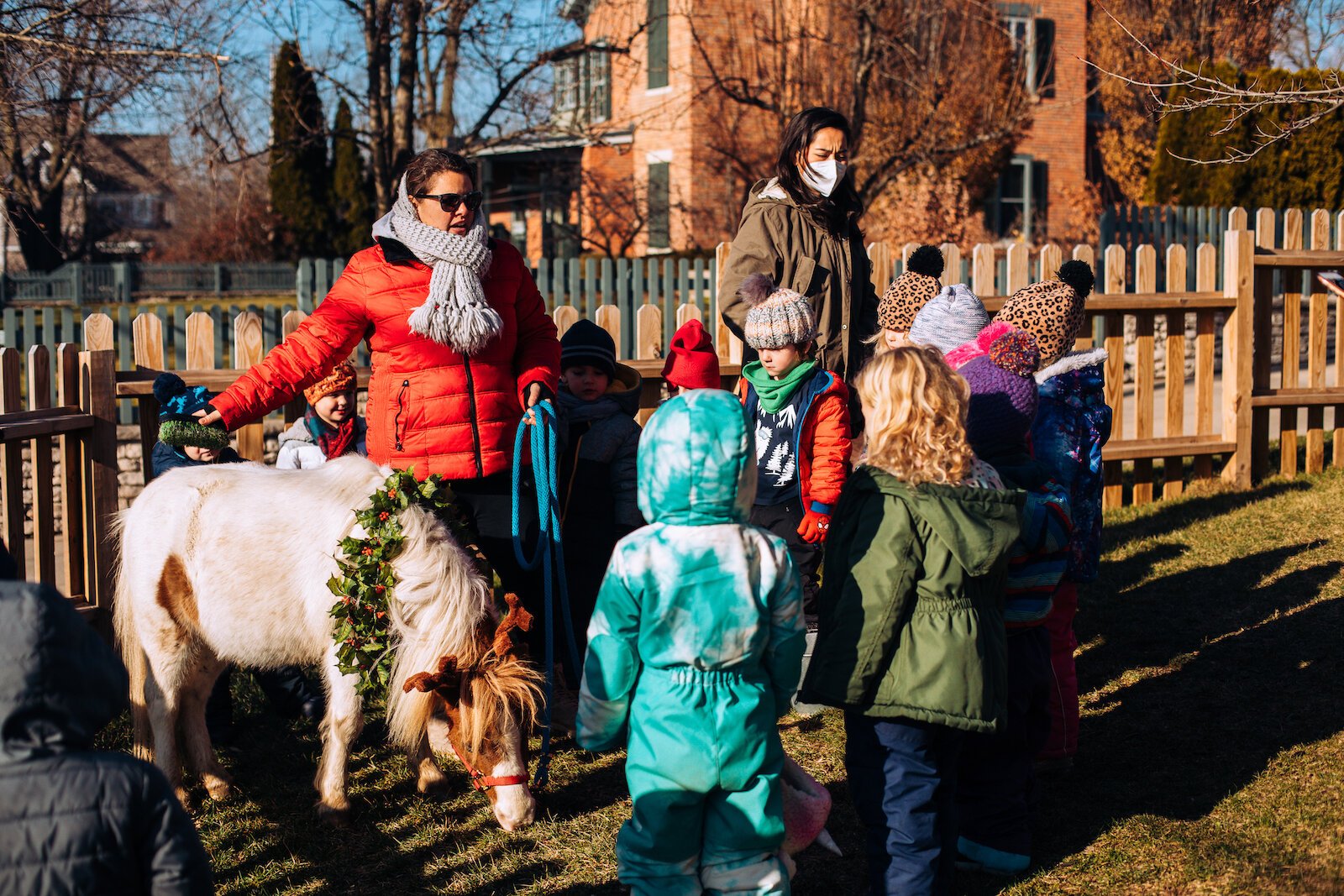
“Everything is very hands-on,” Neher says. “We believe in a sensorial learning experience and want our students to experience a lot of movement.”
Families interested in learning more about The Montessori School at Wabash Presbyterian Church can schedule an observation. While visitors are asked to keep their interactions with children to a minimum, students that have had a lesson in making tea or coffee can offer a complimentary drink or snack to any observers. Neher and her staff see this as a perfect opportunity to practice grace and courtesy, one of the many areas of focus at TMS.
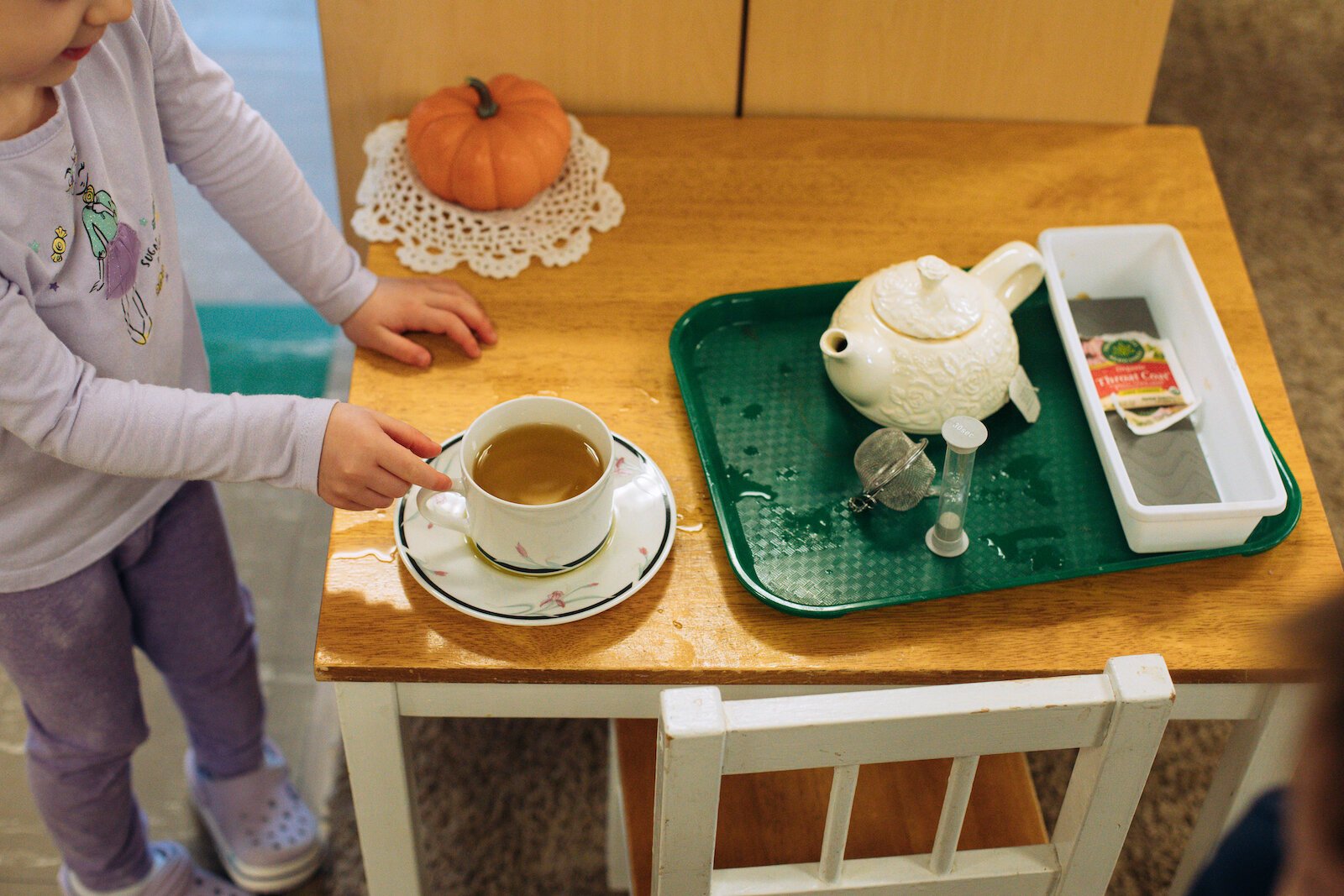
While students at The Montessori School may not have homework or complete daily worksheets, families can have confidence that their children are experiencing learning and growth in the areas of practical life, sensory, language, math, art, grace and courtesy, and geography. Most importantly, students can expect to feel supported, encouraged, and cared for.
Wabash is the focus of a Partner City series in Input Fort Wayne underwritten by Visit Wabash County and Honeywell Arts & Entertainment. This series will capture the story of talent, creativity, investment, innovation, and emerging assets shaping the future of Wabash County, about an hour Southwest of Fort Wayne.




